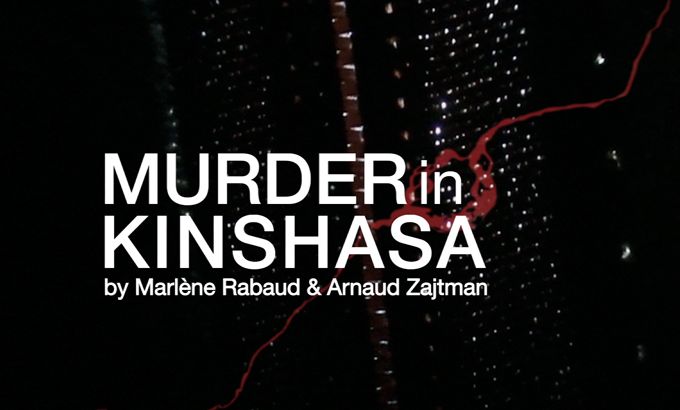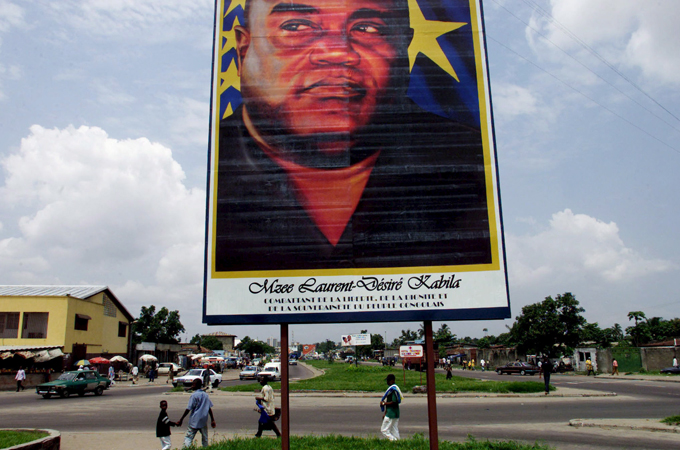
Murder in Kinshasa
Who killed President Laurent Kabila, and why?
In the late morning of January 16, 2001, Laurent-Désiré Kabila, the then president of the Democratic Republic of the Congo (DRC) is murdered in his presidential office by a child soldier who had become his bodyguard.
A few minutes later, Kabila’s assassin is shot to death as he attempts to escape. Later, on his dead body a letter is allegedly found signed by the military attache of the US embassy: “Should there be a problem, call this number.”
Keep reading
list of 3 itemsQ&A: At 60, DRC still plagued by colonial mentality
Joseph Kabila on DRC elections and future: ‘The sky is the limit’
Many other trails weave a thick curtain of mystery around the murder of Kabila, who had seized power in 1997 with the support of his army of child soldiers, putting an end to Mobutu Sese Seko’s dictatorial reign of several decades.
Like many political developments in this resource-rich central African former colony, the real truth behind events remains shrouded in doubt.
Over 50 alleged conspirators remain jailed in Kinshasa’s Makala Prison, but even Kabila’s own ministers do not believe they are guilty.
So who killed Laurent Kabila, and why?

By filmmaker Arnaud Zajtman
When Congolese President Laurent-Désiré Kabila was killed in Kinshasa, capital of the DRC, on January 16, 2001, I was the only foreign journalist in town, which meant I covered the story night and day for many different international news organisations.
The nine-month military trial that followed and led to the conviction of more than 80 people and handing them heavy prison sentences was widely condemned by Amnesty International and other rights groups.
The military court had no evidence to support the heavy sentences pronounced and the defendants had no room for appeal.
I had followed the trial and felt that those condemned were only scapegoats, chosen by former members of Kabila’s entourage in a bid to help his son, Joseph, pretend that he had found his father’s killers and thus allow him to reassert his power.
I felt that this story was important but that it was overshadowed by another. A major war involving six African nations and various rebel factions was raging in DRC. Massacres and rapes were part of daily life for many Congolese and this kept the handful of press correspondents living and working in DRC, like myself, busy.
Assassination revisited
It was only in 2009, when a peace deal between Rwanda and DRC became effective that the news front grew quieter, allowing my co-director Marlène Rabaud and myself to revisit the assassination of Laurent-Désiré Kabila.
This was not easy. In Congo, you can talk about rape, corruption, mineral trafficking and many other things. But if there is one story that is taboo, it is the assassination of Kabila.
In Congo, it is an open secret that those condemned are innocent, but Joseph Kabila is reluctant to pronounce an amnesty. People around him say this is also intended to bring solace to Laurent-Désiré Kabila’s widow (Joseph Kabila’s stepmother), who would resent it if no one was jailed for the assassination of her husband. Sometimes things are as futile as that.
It took time and energy to find witnesses and archives of the trial.
However, after a year-long investigation, my conclusion is that Kabila was killed by his bodyguard, Rachidi Muzele, who was part of a plot that involved a handful of his colleagues, a Lebanese businessman who acted as an intermediary and Rwanda, which masterminded the assassination, knowing that the US was not against it, and gave shelter to those involved.
With no succession plan in place, Rwanda had bet on ensuing chaos that would allow it to continue exploiting the vast mineral wealth of eastern DRC.
Kabila was killed, but the rest of the plot did not go according to plan. To the surprise of many, Joseph Kabila was appointed to succeed his father, and a stronger Congo emerged, slowly managing to regain its sovereignty.
This thesis, which is carefully developed in the film Murder in Kinshasa, has recently been confirmed to me by a former leading intelligence official from Rwanda who spoke to me on the condition of anonymity and by a former Rwandan chief prosecutor who spoke to the Belgian press.
The 50 civilians and soldiers who are still locked up in Kinshasa’s jail are not part of this plot but are only scapegoats.
To me, the disgraceful thing is that Joseph Kabila, who is running for re-election in a month, clings onto the official version of events and is unwilling to set them free.
Among the big powers that provide massive support to DRC through the UN, the IMF and the World Bank, and whose companies break economic deals in the huge and potentially rich country, no one seems ready to pressure him over this case.
Fifty innocent Africans in jail do not seem to weigh too heavily on their conscience.
The views expressed in this article are the author’s own and do not necessarily reflect Al Jazeera’s editorial policy.